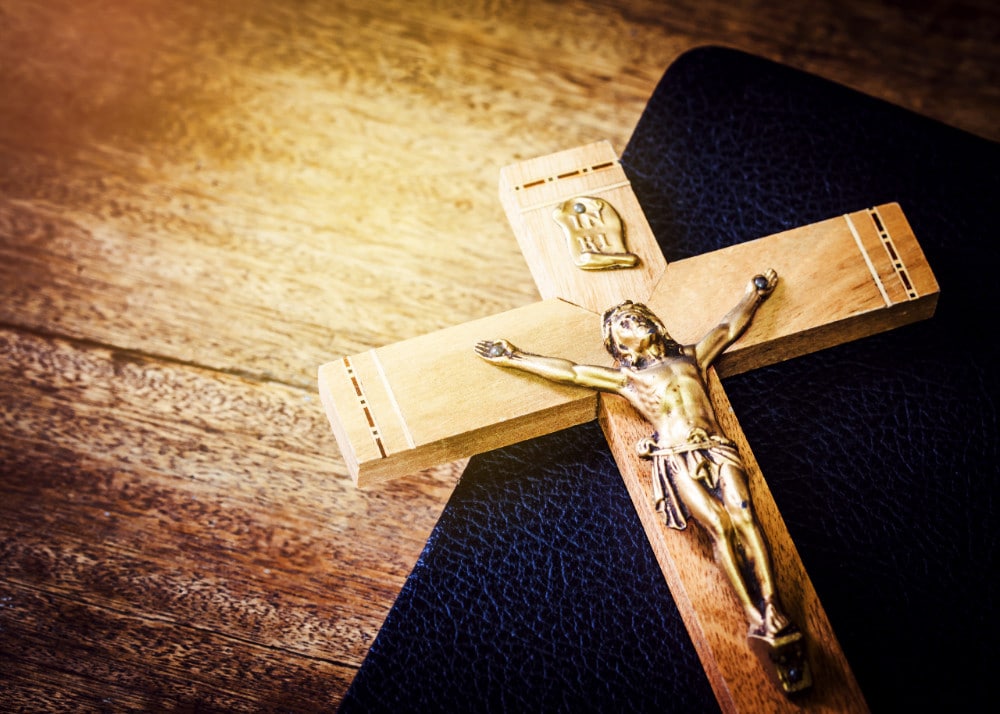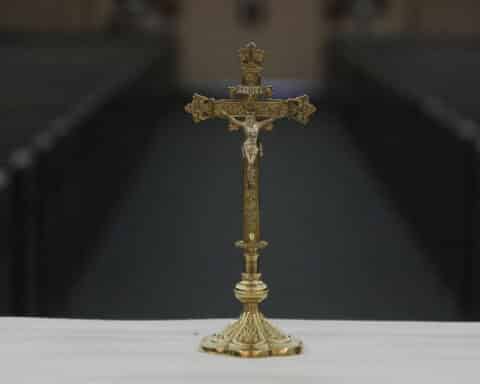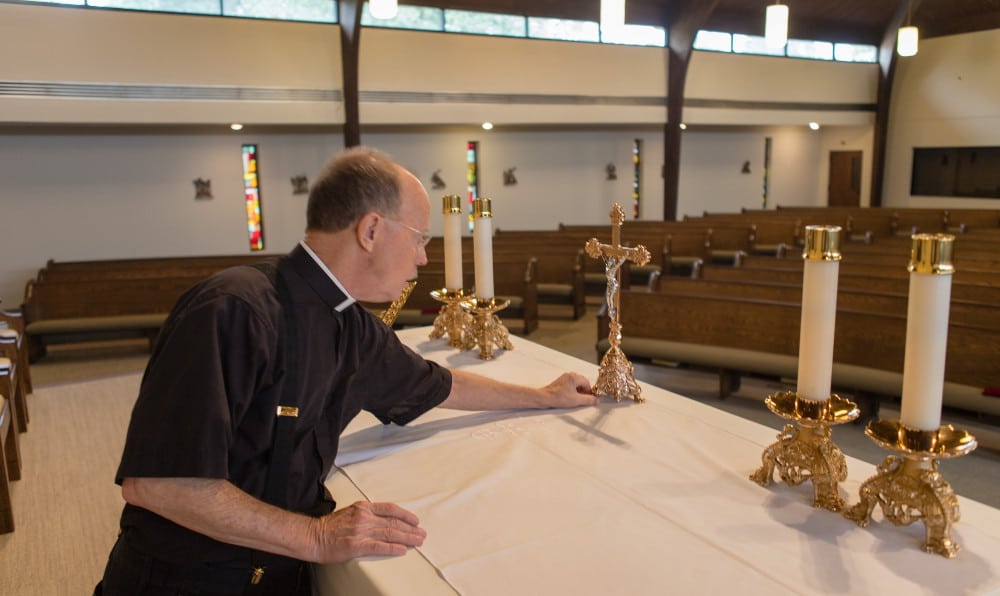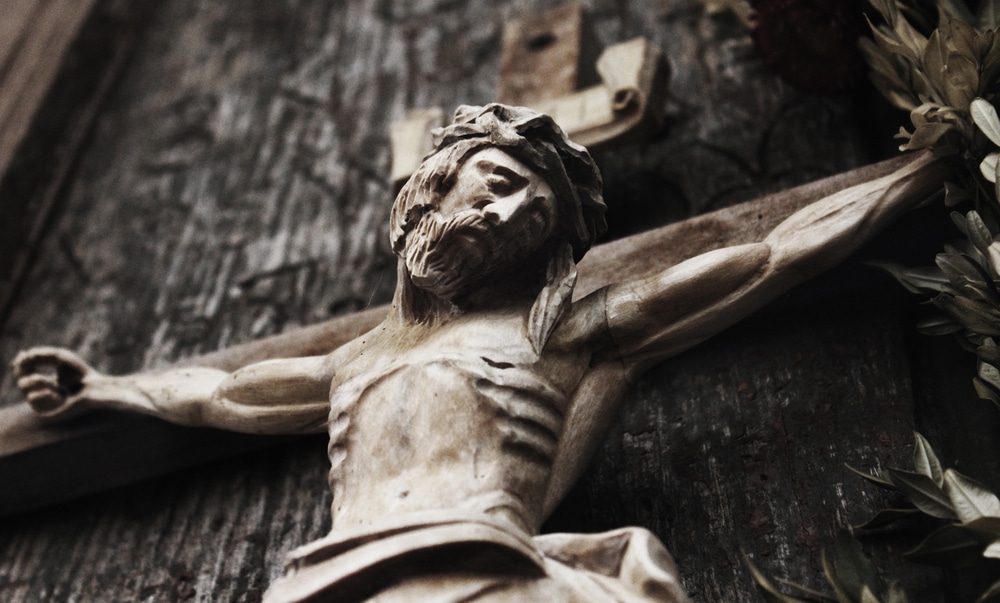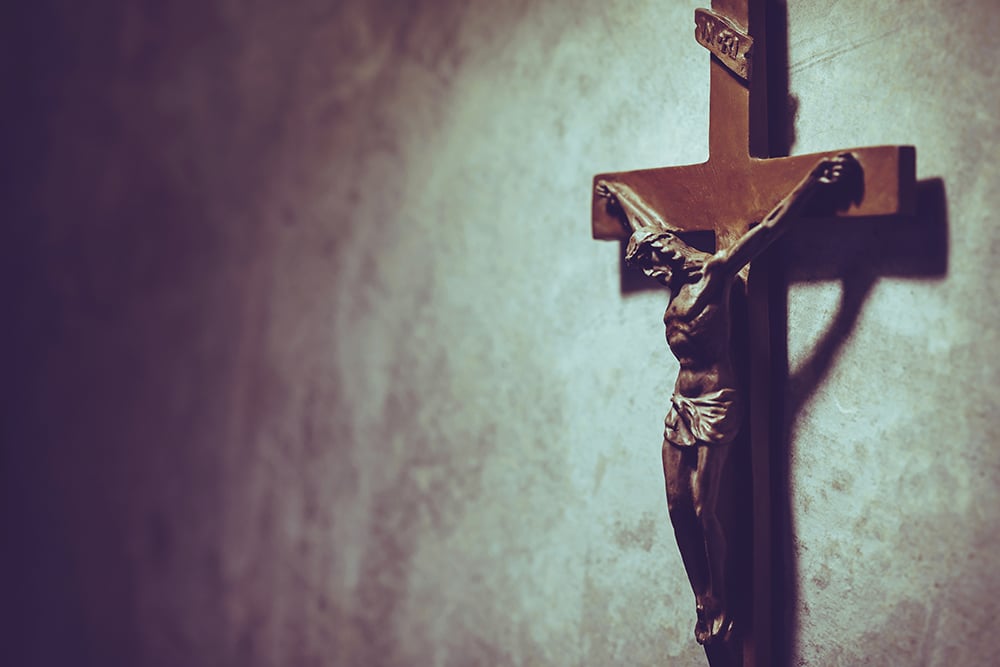
— Kevin Brehmer, Toledo, Ohio
Answer: The crucifix displays the crucified Christ, whereas a cross is empty, just the bare wood. The Catholic Church, going back to antiquity, has used the crucifix; so have the Orthodox and Eastern Churches. The bare cross emerged in the 16th century, first among the Calvinists, who emphasized a simplicity in both liturgy and architecture. Lutherans and Anglicans of that time still used the crucifix, and they had churches that were more ornate than Calvinists, but not as ornate as Catholic Churches. Over time, descendants and breakaways from the Calvinists and Anglicans — such as the Methodists, Baptists and Presbyterians — adopted the plain cross, while many Anglicans and Lutherans still used a crucifix. Even among them, some switched to the simple cross. Catholics simply continued to use the crucifix as we always had.
What likely began among Protestants as a simple preference for simplicity developed into a certain theological stance by some who used the plain cross to emphasize that Jesus had risen and was “no longer nailed to a cross.” To many of them, the cross was now empty and our renditions of it should look that way. Some went so far as to say that Catholics thought Jesus was still on the cross. This, of course, is not true. We are fully aware and solemnly confess every Sunday in the Creed that Jesus is risen from the dead and sits in glory at the Father’s right hand. The crucifix is a depiction of the event of the Passion of our savior, Jesus, a once, for all and perfect sacrifice (cf. Heb 10:14) that reaches across time but is accomplished.
The use of a crucifix (not a simple cross) is mandated in the Catholic liturgy and of both the processional and altar crucifixes. This is because holy Mass makes present the crucifixion of Jesus. We are not “re-crucifying” Jesus. Rather, that once, for all, perfect and completed sacrifice is made present to us. The use of the crucifix calls this to mind. And, while Catholics are permitted to have a simple cross in their homes, the widespread tradition among Catholics is to have a crucifix. Nothing like a crucifix says to visitors, “We are a Catholic home; we are a Catholic parish.”
The crusades
Question: Although the crusades did not go according to the popes’ plans, shouldn’t the Western world be grateful for them? And, I wonder why we never hear about Islam’s atrocities when the crusades are mentioned?
— Armel Audet, via email
Answer: The crusades cover a lengthy period from 1095-1291 if one thinks only of the campaigns to free the Holy Land and protect Christians there. However, if one considers the wider struggle to resist the Muslim conquests of Europe (sometimes called the the Reconquista), the crusades extend into the 15th century. As with any lengthy period of history, there is plenty of good and bad to go around. The mere demonizing of the crusades that is so common is simplistic. There are times when nations and cultures have to defend themselves and their citizens against destruction and even annihilation. Consider that all of North Africa was conquered by the Moors and other Muslims, and the Church there was essentially wiped out. There were once over 500 bishops there with the faithful, and the Church had flourished there since apostolic times. The conquest continued as Muslim forces crossed at Gibraltar and entered Spain and Portugal. Off to the east, Muslim advances reached as far as the gates of Vienna. Christendom was facing an existential threat, and popes and other national leaders sought to address this threat that unfolded over the decades and centuries.
As for atrocities on both sides, they did exist; war is a terrible thing and should be a last recourse. This is not limited to the crusades; it has always been so in all places and times, as it is today.
The world, certainly, should be grateful that Christendom sought to preserve itself. Western civilization, as we know it today, is largely the product of the Judeo-Christian faith and worldview. Many advances in science, politics, art and law, medicine and learning in general took place in the Christian West.
Msgr. Charles Pope is the pastor of Holy Comforter-St. Cyprian in Washington, D.C., and writes for the Archdiocese of Washington, D.C. at blog.adw.org. Send questions to msgrpope@osv.com.

